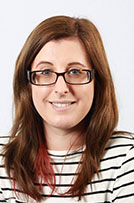Take care with your instructions to candidates - Clare Trevatt
21 April 2015
I have a quick reminder for all our GCSE history modern world centres. When GCSE History B (Modern World) was redeveloped for first teaching in September 2013 and first assessment in 2015, a key amendment was the prohibition of certain options due to overlap.
So I thought now was a good time to remind you that due to the prohibition of certain combinations, the rubric for paper 1 has changed. Any options that are prohibited will no longer appear together in the same exam paper.
For instance, if we take the Germany 1918-1945 paper 1, in previous years it was set out like this:
In Part 1, Aspects of International Relations, choose one of the following sections:
Either - Section A: The Inter-War Years, 1919-1939
Or - Section B: The Cold War, 1945-1975
Or - Section C: A New World? 1948-2005.
Then answer Question 1 and one other question from the section you have chosen.
In Part 2, Depth Study Germany, 1918-1945, answer Question 4 and one other question.
As the option ‘The Inter-War Years, 1919-1939’ with ‘Germany, 1918-1945’ is now prohibited, this option will not appear on the question paper.
So, from 2015, the question paper will be set out like this:
This paper is in two parts:
Part 1: Aspects of International Relations (Sections A and B)
And
Part 2: Depth Study Germany 1918-1945.
In Part 1: Aspects of International Relations, choose one of the following sections:
Either - Section A: The Cold War, 1945-1975
Or - Section B: A New World? 1948-2005.
Then answer Question 1 OR Question 4 and one other question from the section you have chosen.
In Part 2: Depth Study, Germany, 1989-1945, answer Question 7 and one other question.
So please remember to bear this in mind if you are directing your candidates to skip certain pages of the exam paper when they enter the exam hall.
You can see the rubric changes for all of the depth studies in paper 1 on qualification page under ‘Assessment Materials’.
About the author
Clare Trevatt - Subject Specialist - History
 I have worked at OCR for a few years now, first working on Religious Studies and then moving across to work on History qualifications. My degree is in History, with emphasis on modern non-European and medieval British history. I previously worked for the Department of Education, in the funding and contract management of providers delivering provision up to Level 2. In my spare time I like to read anything and everything, play with my dogs and spend time on the Norfolk coast.
I have worked at OCR for a few years now, first working on Religious Studies and then moving across to work on History qualifications. My degree is in History, with emphasis on modern non-European and medieval British history. I previously worked for the Department of Education, in the funding and contract management of providers delivering provision up to Level 2. In my spare time I like to read anything and everything, play with my dogs and spend time on the Norfolk coast.